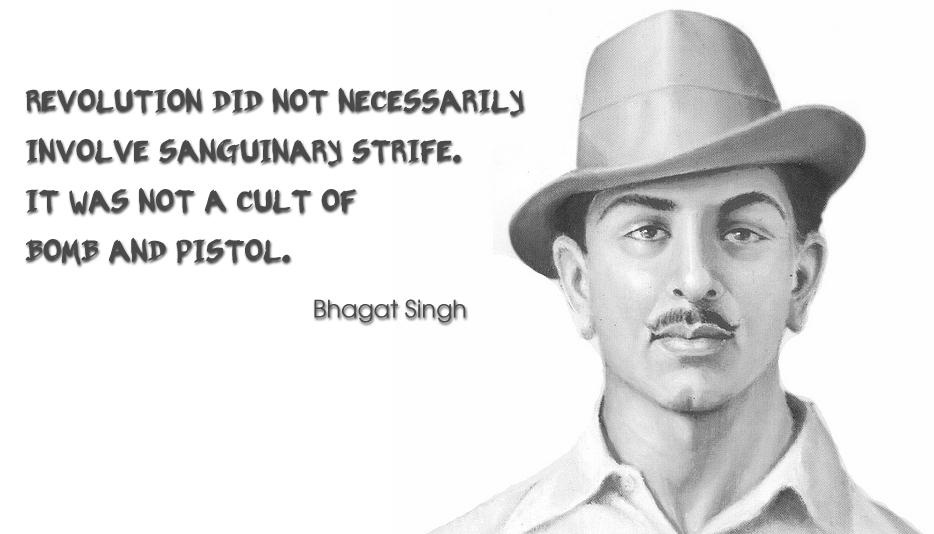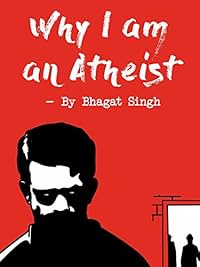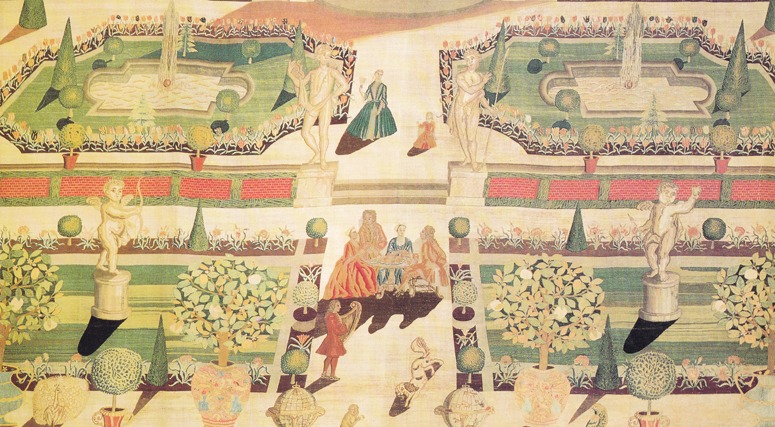VENKYS
The official blog of Venkatesh Rao.
ಆಧುನಿಕ ಭಾರತದ ತೀರ್ಥಸ್ಥಳ

ಭಾರತದ ಪ್ರಪ್ರಥಮ ಪ್ರಧಾನಮಂತ್ರಿ ಜವಾಹರಲಾಲ್ ನೆಹರೂ ಅವರು ಪದಾಸೀನ ರಾಗಿದ್ದ ಸಮಯದಲ್ಲಿ ಯಾವಾಗಲೂ ಯಾವುದೇ ಧಾರ್ಮಿಕ ಸ್ಥಾನ ಗಳಿಗೆ ಭೇಟಿ ನೀಡಿರಲಿಲ್ಲ ಬದಲಿಗೆ ಭಾಕ್ರಾ ನಂಗಲ್ ನಿರ್ಮಾಣ ಸ್ಥಳದಲ್ಲಿ ಅವರು ಆಧುನಿಕ ಭಾರತದ ತೀರ್ಥಸ್ಥಳಗಳು ಇವೇ ಆಗುತ್ತವೆ ಎಂದು ಭಾಷಣದಲ್ಲಿ ಹೇಳಿದರು. ಅವರು ಅಣುಶಕ್ತಿ ಸಂಸ್ಥಾನ ಗಳೊಂದಿಗೆ ಐ ಐ ಟಿ ಸಂಸ್ಥೆಗಳನ್ನೂ ನಿರ್ಮಾಣ ಮಾಡಿದರು. ಈ ರೀತಿಯಲ್ಲಿ ಅವರು ಭಾರತದಲ್ಲಿ ಆಧುನಿಕತೆಯ ಆಧಾರಶಿಲೆಯನ್ನು ಇಟ್ಟರು ಹಾಗೂ ಅದನ್ನು ಭಾರತದ ಐತಿಹಾಸಿಕ ಗೌರವದೊಂದಿಗೆ ಜೋಡಿಸಿದರು. ಅವರ ಇತಿಹಾಸ ಭೋಧ ಹಾಗೂ ವೈಜ್ಞಾನಿಕ ದ್ರಷ್ಟಿಕೋನದ ಪರಿಣಾಮವೇ ಅವರು ಬರೆದ "ಡಿಸ್ಕೋವರಿ ಆಫ್ ಇಂಡಿಯಾ" ಸಂಕಲನ.
ಪ್ರತಿಯೊಂದು ಕ್ಷೇತ್ರದಲ್ಲಿ ಇಂದು ನೆಹರೂ ಅವರನ್ನು ಗುರಿಯಾಗಿಸಿಕೊಂಡು ಟಾರ್ಗೆಟ್ ಮಾಡುವ ಸ್ಪರ್ಧೆ ಜೋರಾಗಿ ನಡೆಯುತ್ತಿರುವುದನ್ನು ನಾವು ಕಾಣಬಹುದಾಗಿದೆ. ಪ್ರಸ್ತುತ ರಾಜಕೀಯ ಶಕ್ತಿ ಆಧುನಿಕತೆಯ ವಿರುದ್ಧ ವಿದ್ರೋಹ ಹಾಗೂ ಪಿತೂರಿ ಆಗಿದೆ. ಈಗ ಸಂಪ್ರದಾಯವಾದವನ್ನು ಮರುಸ್ಥಾಪನೆಗೊಳಿಸಲಾಗುತ್ತಿದೆ. ಯೋಗಿ ನೇಮಕವನ್ನು ಈ ರೀತಿಯಲ್ಲಿ ಕಾಣಬಹುದು.
भगत सिंह और पिस्तौल

भगत सिंह की पुण्य तिथि के अवसर पर हम उनके स्मरण के अलावा क्या कर सकते हैं | हम सकारात्मकता का अलख जगाकर बगत सिंह के जीवन मूल्यों को कुछेक क्षणों के लिए ही सही स्मरण करके उसे बेहतर समाज बनाने हेतु इस्तेमाल कर सकते हैं । भगत सिंह ने पिस्तौल से कोई खून खराबा नहीं किया वरन उसे एक संज्ञा की तरह इस्तेमाल किया । उन्होंने कबूल किया की उनका उद्धेश्य सिर्फ और सिर्फ बहरी फिरंगी सरकार को जगाना है ना ही किसी की जान लेना |
उनके लिए देश भक्ति का मतलब यह नहीं की देश का एक मूर्ती बनाकर उसका पूजा करना नहीं था वरन एक ऐसा जिंदगी जीना जिसमे साधनहीन के लिए करुणा तथा समाज के हाशिये पर पड़े लोगों के लिए संवेदना हो । उनके लिए मानवीय करुणा किसी राष्ट्रीयता या देश भक्ति से बढ़कर था । गुरु रबिन्द्रनाथ टैगोर ने राष्ट्रीयता पर एक किताब लिखी थी । वे राष्रीयता को मानवता के लिए खतरा माना और खंडन किया |
भगतसिंह की पिस्तौल को विचार-प्रक्रिया में जीवित रखें और इससे निकली गोलियां अंधविश्वास और कुरीतियों पर निशाना साधें इस क्रांति में कहीं कोई खून नहीं रिसेगा परंतु विचार प्रक्रिया में भगतसिंह के समाजवाद को साकार करने का प्रयास होगा। वर्तमान में पूंजीवादी समाज संरचना का बोलबाला है। पूरे विश्व में वामपंथी विचारधारा लुप्त होती जा रही है। जिस किसी व्यक्ति की विचारधारा में साधनहीन के लिए करुणा है, वही समाजवादी विचार का बीज है गोयाकि यह हृदयहीनता के खिलाफ एक युद्ध है। दुनिया के तमाम कवि, लेखक एवं विचारक साधनहीन के प्रति संवेदनशील होते ही वामपंथी हो जाते हैं। हिंदी के मशहूर साहित्यकार मुंशी प्रेमचंद के पात्र साधनहीन व्यक्ति हैं और उनमें जीवटता है अत: वे समाजवादी हैं। शायर कैफी आज़मी साहब मार्क्सवादी कम्युनिस्ट चिंतक रहे और उसके प्राथमिक सदस्य रहे । वे समाजवादी मूल्यों का प्रतिपादन किया तथा जीवनभर उसका निर्वाह किया ।
Why I am an Epicurean

Bhagat Singh is undoubtedly one of the most beloved revolutionaries in India. He ironically holds deep affection among both the conservative right wing faction and also among the left wingers. Given todays political and social eco-systems, his essay "Why I am an Atheist" is most relevent. I wanted to write something similar but not sounding radical. When it comes to the philosophy, Epicuras had a great influence on me. What will be better to write than the philosophical ideas of Epicuras. Epicuras thought that politics was a needless cause of worry and anxiety. So his thoughts can be attracted by all the people irrespective of the ideologies.
I was attracted to Epicureanism in the first place by what Epicurus said about fear. Many years ago I was told, “You are full of fear. You will never be content until you have reduced your level of fear. It is obvious in everything you do“. some call it “eternal vigilance” At best it is an underlying and pervasive anxiety, at worst it leads to instant panics and irrationality. It is a burden.
So much of what I have done in my life has been driven by fear: fear of failure, fear of seeing the family reduced in the world, fear of being out of work, fear of letting down those who depend on me, fear of lack of money, fear of being disliked. So many fears!
Don't fear god, Don't worry about death; What is good is easy to get, and What is terrible is easy to endure.

I think most people are driven by fear to some degree or other. It is a normal human emotion, and it has some benefits. Without fear our ancestors would have been eaten by saber-toothed tigers. Without fear, the human race would not have achieved the levels of comfort, wealth, health, and control over its environment that it has achieved. Fear has been responsible for many good things as well as many evils.
A happy and eternal being has no trouble himself and brings no trouble upon any other being; hence he is exempt from movements of anger and partiality, for every such movement implies weakness.
Buddha told us not to fear, but Epicurus says it so simply, without the interpolations of priests. Some religious sects build huge revenues out of a mixture of hope and fear: hope of the afterlife, and fear of everlasting damnation, brimstone and fire if you fail to adhere to their teachings. They use fear as a mechanism of social and political control. At present politicians, astrologers and palmists frighten us with the weapon called as Fear. A half-attentive population believes it all and becomes prey for these people out of fear.
"Luxurious food and drinks, in no way protect you from harm. Wealth beyond what is natural, is no more use than an overflowing container."
So the idea of personal “lack of fear” is attractive. Of course, you cannot eliminate all fear, nor should you. But Epicurus taught that the greatest objective in life is peace of mind — peace of mind comes when you have nothing to fear. He told us not to fear death — death itself does not hurt. And he told us that there is indeed eternal life, but not in the sense that Catholics believe. To Epicurus eternal life means that your atoms are recycled forever in a myriad of forms, from which there is nothing to fear, for nature is impartial.
Try not to fret about things you cannot control.
Is God willing to prevent evil, but not able? Then he is not omnipotent. Is he able, but not willing? Then he is malevolent. Is he both able and willing? Then whence cometh evil? Is he neither able nor willing? Then why call him God?

I suppose there is nothing exclusively Epicurean about this stricture. I am sure many philosophies, maybe several religions, teach the same thing. But I heard it first from Epicurus. Of course, it is one thing to quote the saying and quite another to live by it. You can’t have peace of mind if you are constantly busying yourself about things you cannot control. But we all do it, and maybe never stop doing it in one way or another. When one is retired and one has more time to think about the world, the more one gets concerned about misery and misgovernment and other age-old problems that will never be fixed. The irony is that the more retired you are the less power you have to change anything at all. It’s a good principle, though, and helpful.

Mental pleasure is better than bodily pleasure. Keep your mind alive.
Of all the means which wisdom acquires to ensure happiness throughout the whole of life, by far the most important is friendship.
It is inconvenient, often painful, to have things go wrong with your body, and therefore I assiduously look after it, but mainly for practical reasons. As I have become older I’ve become more concerned with matters of the mind. What a voyage of discovery it is trying to discover what the brain is capable of! Is there a limit to the number of melodies the brain can remember? Is there a limit to the number of tunes that can pop into the head, to be written down? Equipped with a rhyming dictionary and a thesaurus, where is the limit to the power of the brain to adopt unexpected rhyming couplets that take the story forward while still scanning, making sense and even sometimes being funny? Drawings of hippos are not great art, but the real trick is a trick of the brain — can it come up with an apposite, hopefully amusing concept or message that can be illustrated with a drawing of a hippo? How is one’s lateral thinking? Can one find connections between current and historical events and make from them a good story or a political case?
These things give me more pleasure than a good dinner or even an exotic holiday, much as I enjoy both.
Let no one be slow to seek wisdom when he is young nor weary in the search of it when he has grown old. For no age is too early or too late for the health of the soul.
Live simply and prudently, with self-control and moderation. Seek simple pleasures, those that satisfy natural and necessary desires, chief of which are food, drink, clothing, shelter, friendship and love.
I think Jesus says something very similar, and I’m sure the Eastern philosophies do. But it was Epicurus who made me think about it. Have I lived this way? I would like to think I have. It is really common sense, but it is difficult to do in a consumerist age, where possessions are deemed equivalent to happiness.

My only problem with this has been friendship. The reality has been that, like many, I have been dependent on many for instance, comes along you realize whose friends they really were all along. It is disillusioning, and it can result in a withdrawal from intimacy (in the old, respectable sense of the word), for fear of rejection and the superficiality of some of the friendships one observes.
The quality of pleasure is more important than the quantity.
This is a very useful thing to tell us. We all chase around doing a host of things, hoping thereby to be happy. Actually, a few events, trips, or get-togethers of high quality are more satisfying than the constant activity and filling in of time on unsatisfying and second-rate happenings that simply leaves you tired and wishing you’d stayed at home.
Avoid upsetting and offending people
Common sense? Well yes, but not so common. Some people don’t care as long as they get what they want. Others, myself included, try their utmost to avoid offense and to please everyone (but be fierce in self-defense where necessary.) You can be more “successful” in life by pressing ahead in the face of objections and doing what you think is right regardless of the opinions of others (in your own or in the general interest). On the other hand, one lives a calmer life antagonizing as few people as possible.
“Let us live while we are alive”
Ah, there you have it! No one thanks you for living a life of self-abnegation and self-sacrifice. This is an idea popularized by the monastic movement and, later, by the puritans, neither of whom were as “pure’ as they tried to insist.
One is a long time dead. We have a brief time to enjoy the good things the earth has given us, and why not, as long as we harm no one else in the process. Only Epicurus says this, as far as I am aware. The church asks for acknowledgment of guilt, repentance, absolution, redemption, and after all that we still don’t know that we’ll go to heaven. Epicurus wants to stress the joy of living – – some churches want to stress the guilt one should feel for a host of actions or even thoughts. The congregations may sing jolly songs, but are wracked with guilt.
Epicurus absolves us from all the hang-ups and insists that we enjoy life. The implication is that this should be done with a laugh, a smile and a sense of humour.
Shawshank Redemption

Shawshank Redemption is considered as one of the greatest movie. The rating 9.3 out of 10 it has got in IMDB is testament for to say that. There are a bunch of messages in the movie, some hidden and some stated – it is about Hope winning over Fear, for example. But there is this hidden lesson, a very powerful one, that one can infer from the movie.
I have never seen such an amazing film since I saw The Shawshank Redemption. Shawshank encompasses friendships, hardships, hopes, and dreams. And what is so great about the movie is that it moves you, it gives you hope. Even though the circumstances between the characters and the viewers are quite different, you don't feel that far removed from what the characters are going through.
The situation that Andy Dufresne is faced with is very tricky. He embarks upon an activity (carving through a wall) – which has three characteristics:
1. It would take a really long time to complete. He has a feel for how long it would take – but he doesn’t know that exactly. And that feel changes every day as well
2. He can get caught at any point – in the beginning, in the middle, or at the end – literally on any given day until he is done – and if he is caught, all his efforts up to that point add up to nothing. The net effect of getting caught would be negative, in the form of additional punishment, added with absolutely no scope of receiving a parole thereafter
3. The end result is binary: If he gets caught, twenty years’ effort adds up to nothing. On the other hand, if he succeeds, he can be a free man and live the rest of his life happily.
If you think about it, the exact same characteristics are shared by anyone working on a Startup (in addition to the fact that only fools would embark on a journey with these characteristics):
1. It would take a really long time to complete. You have a feel for how long it would take – but you don’t know that exactly. Besides, this feel changes everyday.
2. You can fail at any point- in the beginning, in the middle, or at the end – literally on any given day until you are done – and if you fail, all your efforts up to that point add up to nothing. The net effect of a failure would be negative, in the form of lost investment, opportunity costs, and a bunch of significant ‘could have beens’
3. The end result is binary: If you fail, you will feel that your efforts added up to nothing. If you succeed, well…..
It might be a strange observation to make from a movie about people serving life-terms in prison – but if you observe closely, the simple and most powerful message from ‘The Shawshank Redemption’ is this: ‘Enjoy The Journey’.
Remember the smile on Andy’s face when he disposes off the pieces from the wall every day in that prison ground? It could be the light at the end of the tunnel that keeps you going, or it could be the thrill that comes from the stealthiness of it all – but you have to remember that the journey is more important and satisfying than the destination – getting into that mode is absolutely essential for everyone embarking on the journey.
You have no idea how deep the wall is. You have nothing but a rock hammer. You have no idea when you will be caught.
What you do have, is the journey. Enjoy the journey.
The story has a resemblence to my own life. I worked really hard for nearly 15 years, but lost all the fortunes. Which is a irony. But you don't give up hope.
Set aside a little over two hours tonight and rent this movie. You will finally understand what everyone is talking about and you will understand why this is my all time favorite movie.

I was always surrounded by consumeristic people, who used to wonder and keeps on asking me "Why the hell are you watch the movie of old men?". I told them,
"Set aside a little over two hours tonight and rent this movie. You will finally understand what everyone is talking about and you will understand why this is my all time favorite movie.
Pyaasa - a strugle of a poet

It is a story of a poet trying to make his work known by readers. But, the materialistic world redicules him and refused him. Devestated by the rejection and exploitation by the selfish world, he escapes from the harsh world and tries to sucide but fails. He ends up at a mental Hospital.
Ghosh and Shyam, Vijay's close friend, refuse to recognise him and he is committed to a mental asylum since he insists he is Vijay and is thought to be mad. Vijay's brothers too are bought off by Ghosh not to recognise him and a memorial is held for the dead poet. Vijay with the help of his friend Abdul Sattar (Johnny Walker) escapes from the mental asylum and reaches the memorial service where he denounces this corrupt and materialistic world. Seeing that Vijay is alive his friend and brothers take side with a rival publisher for more money and declare this is Vijay. At a function to honour him, Vijay becomes sick of all the hypocrisy in the world around him and declares he is not Vijay. He then leaves with Gulabo to start a new life.
There was a debate between writer Abrar Alvi and Guru Dutt on film's ending. Abrar wanted the protagonist to accept and compromise with the prevailing material social reality; Guru Dutt insisted otherwise.
- Guru Dutt and his movies, including Pyaasa, have a large cult following in France and Germany. It was a huge commercial success during its 1984 French Premiere, ironically something Guru Dutt never witnessed during his lifetime. Since then, the movie has been screened to huge mass appeal world over, like the recent screening at The 9th International Festival of Asian Cinema held in Vesoul, in February 2003.
- Is a Time top 100 movie of all times and when ask among readers, it has been voted as the most romantic film ever made in history.
- After a slow opening, Pyaasa went on to be a major commercial success of the year. This gave Guru Dutt the confidence to make a repeat on a grand scale. However, Kaagaz Ke Phool went on to be a commercial disaster. Ironically, the movie picked up a cult following world over in 1980s much after Guru Dutt died.
It is also surmised that the story is based on the life of film's lyricist Sahir Ludhianvi who had failed affair with poet and writer Amrita Pritam .
